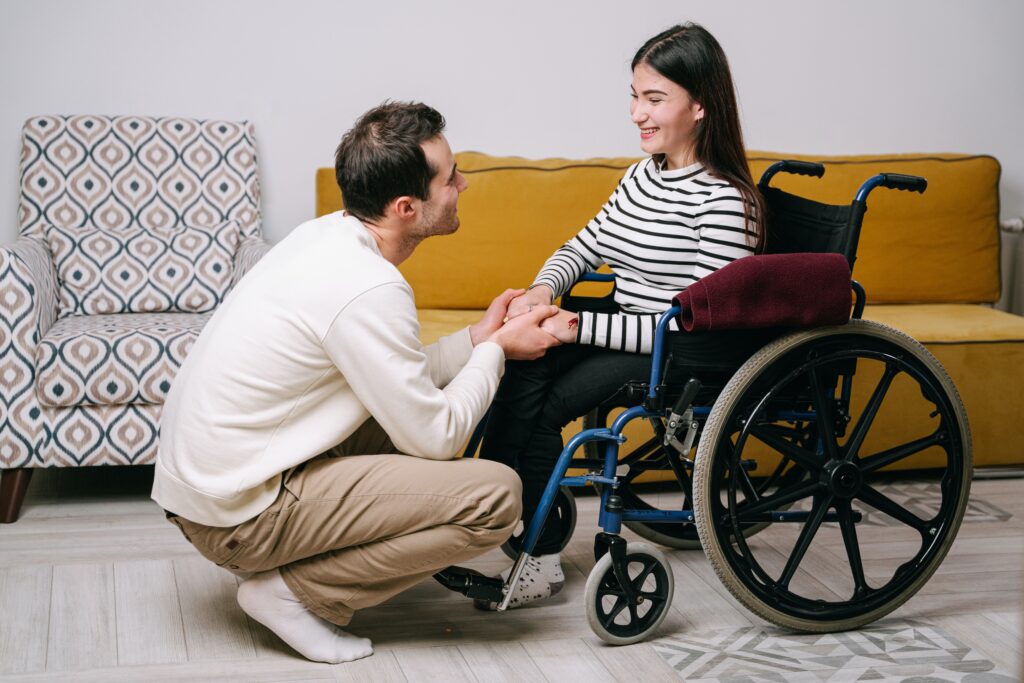The NDIS was rolled out across Australia in 2016 by the federal government. Its purpose is to provide Australians (aged 65 years and below) with a disability supports and services to help them live their lives to the fullest. The NDIS can provide funding in a wide range of categories and supports, from necessary equipment, various therapies, and support workers to assist in everyday life. Occupational therapy (OT) is a type of allied health therapy that may be funded by the NDIS. It comes under the ‘therapeutic supports’ category of NDIS funding and this article will explore how OT can change your life.
OT is aimed at evolving a person’s independence so that they have more control over their own life. People of all ages can benefit from OT, and although people with medical diagnoses often avail of OT services, OT may also help someone with no diagnosed medical condition but has some difficulties in particular aspects of life. Generally, there are two ways OT helps people:
- The OT will work with the person to advance their skills in specific areas
- The OT will work with the person to amend the person’s environment to ameliorate physical challenges including assigning aids and devices, assistive technology, modifications or other specialised equipment.
Like with other NDIS services and supports, it is best if you have transparent and well-defined goals about what you would like OT to help with. This will ensure that NDIS funding is granted and organised in a manner that best aligns with your objectives. For example, some people may need regular and long-term therapy, while others may request funding for special equipment.
NDIS OT can help with social skills
To be able to function in society to the best of your ability, it is crucial to build strong social skills so that you can interact and engage with other people in a healthy way. A common goal for children needing OT is to develop their social skills, which is important to their overall development. While therapy will obviously differ between individuals, some frequent ways OT can advance social skills are:
- Simplify or breaking down the task. Some people have difficulty recognising social cues or the usual steps/process involved in a social task or game. Children in particular may struggle in this area due to limited exposure and experience. An OT can help to distinguish between specific activities or scenarios that can help them understand what is supposed or expected to happen in certain situations. This allows the person to better understand the appropriate or acceptable responses and behaviours when interacting with peers.
- Helping to understand the environment. Our physical environment and surroundings are vital aspects of social interaction. Factors such as noise, crowds and weather can all affect how a person is able to adapt to new environments. OT can focus on identifying distinct environments that the person finds challenging and advance ways to modify the situation or environment to make it easier for the person to function.
- Using play therapy. Many people who have challenges with social skills start to exhibit difficulties in early childhood. OTs who work with children often use play therapy to given them a practical context to develop their social skills. Through using play, children can learn how to adapt to change, regulate their emotions, understand social roles, problem-solve and negotiation skills.
NDIS OT can help to complete activities of daily living (ADLs)
Activities of daily living (ADLs) are those everyday tasks that are essential to functioning, such as basic self-care (bathing, dressing, feeding), ambulating/walking, continence and toileting. People with medical conditions may have challenges in these areas that make them dependent on other people or equipment to accomplish these activities. In children, a prevalent focus of OT is to improve fine and gross motor skills to increase their capacity to see to their own personal hygiene and elemental self-care activities. OT can assist to enhance factors such as grip and overall hand strength, body stability, hand-eye coordination, posture control and physical endurance.
Adequate fine and gross motor skills are essential to being able to fulfil basic everyday and self-care tasks, and are integral building blocks in a person’s overall development. As such, children needing OT regularly have a core goal to improve in this area.
NDIS OT can prescribe equipment and modifications
People with physical disabilities may need specialised equipment or modifications to improve their independence. Examples of common assistive equipment that OTs prescribe include wheelchairs, grips to help with cutlery, cushions and mattresses, modified computer and mouse, or rails (e.g. around the home, bathroom). OTs may also complete assessments for home modifications (e.g. ramps, rails, bathroom/shower modifications) and vehicle modifications (as a driver or passenger). Your NDIS funding may pay for the OT assessment (to prescribe the equipment and/or modifications), as well as fund the purchase of the equipment, assistive technology or home or vehicle modification.


